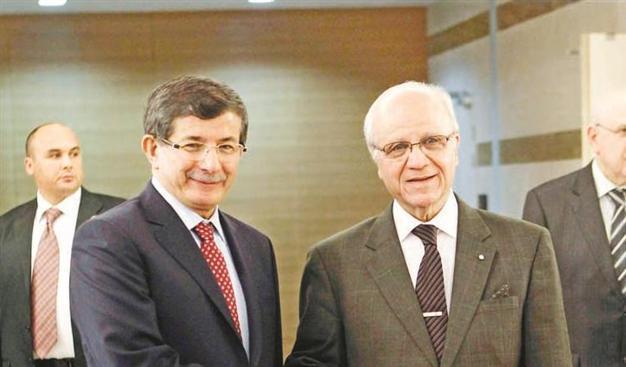Delay of nuclear talks disappoints Ankara
ANKARA - Hürriyet Daily News

Turkish FM Davutoğlu (L) was in Algeria
to have official contacts. REUTERS photo
The Turkish capital expressed disappointment on Monday over the postponement of a conference aimed at trying to ban nuclear weapons in the Middle East, while voicing expectations that the conference would be held at the earliest convenience.
“Turkey is disappointed to be informed of the decision to postpone the International Conference on the establishment of a Middle East zone free of nuclear weapons and all other weapons of mass destruction, which the 2010 Review Conference of the Non-Proliferation Treaty had foreseen to be organized this year,” The Foreign Ministry said in a written statement.
“It is Turkey’s sincere expectation that the conference takes place at the earliest convenience, since this initiative would represent not only an important confidence building measure at this critical stage in the Middle East, but also a significant stimulus to the NPT [Non-Proliferation Treaty] Review Process,” it said.
The ministry’s statement went on further to urge involved parties toward a solution. “To this end, we call on all states to adopt a constructive approach and deploy genuine efforts for the organization of the conference at the earliest convenience,” the ministry said, lending full support to the efforts of the conference’s facilitator, Ambassador Jaakko Laajava of Finland, and his team.
The plan for a meeting to prepare the ground for the possible creation of a Middle East free of weapons of mass destruction was agreed to during a May 2010 conference attended by 189 parties to the 1970 nuclear NPT.
Like nuclear-armed India and Pakistan, Israel has never signed the NPT. It neither confirms nor denies having nuclear arms, although non-proliferation and security analysts believe it has several hundred nuclear weapons.
The U.S. State Department said Nov. 23 that the conference could “not be convened because of present conditions in the Middle East and the fact that states in the region have not reached agreement on acceptable conditions for a conference.”
It did not spell out when or if the event would take place.
